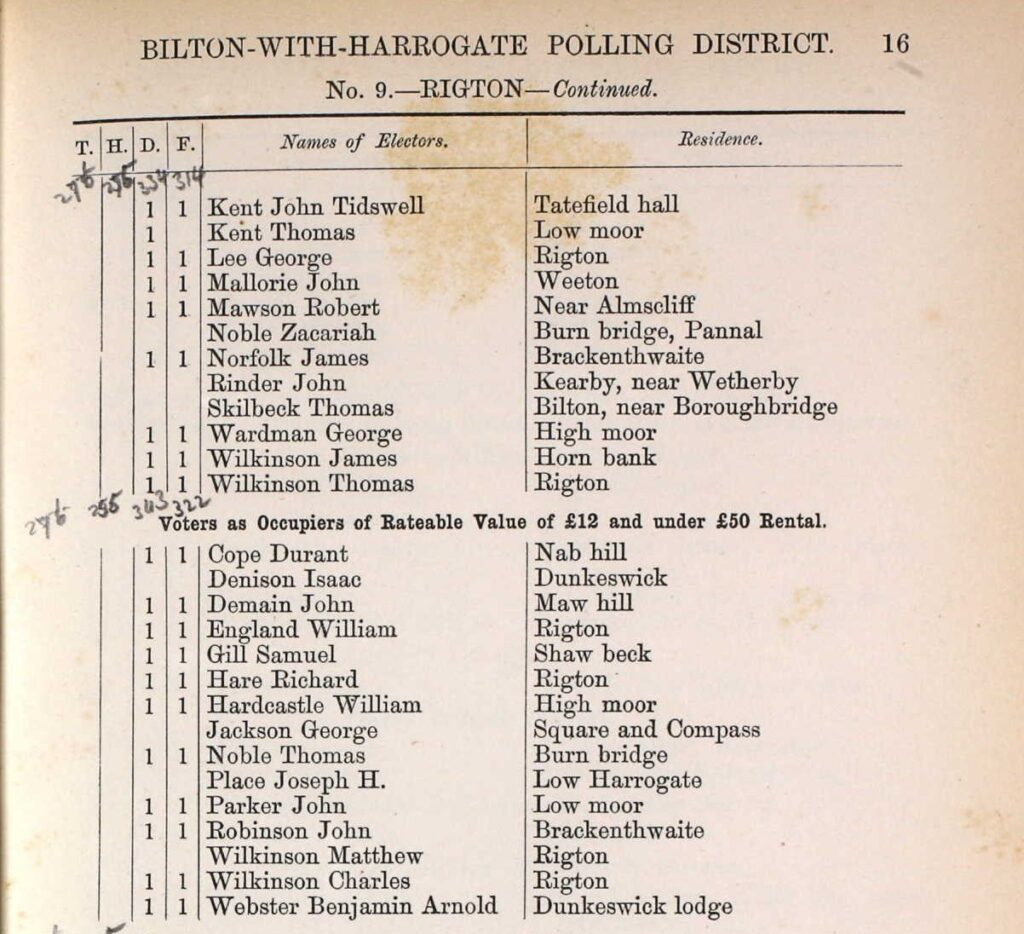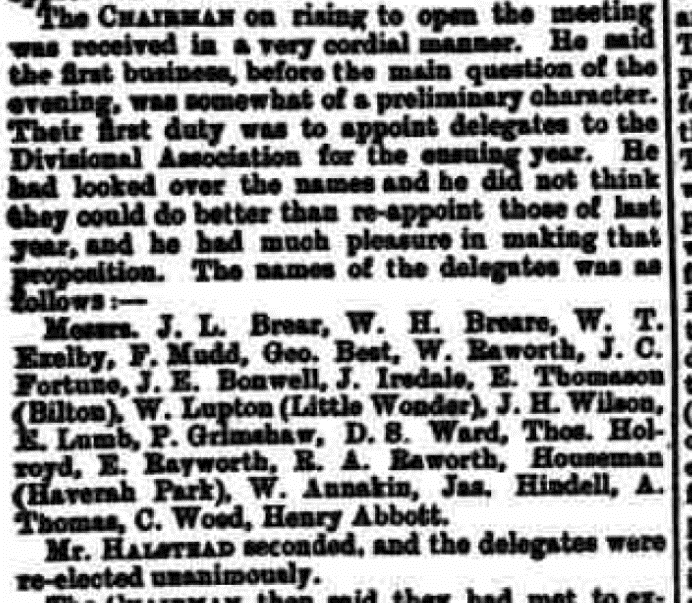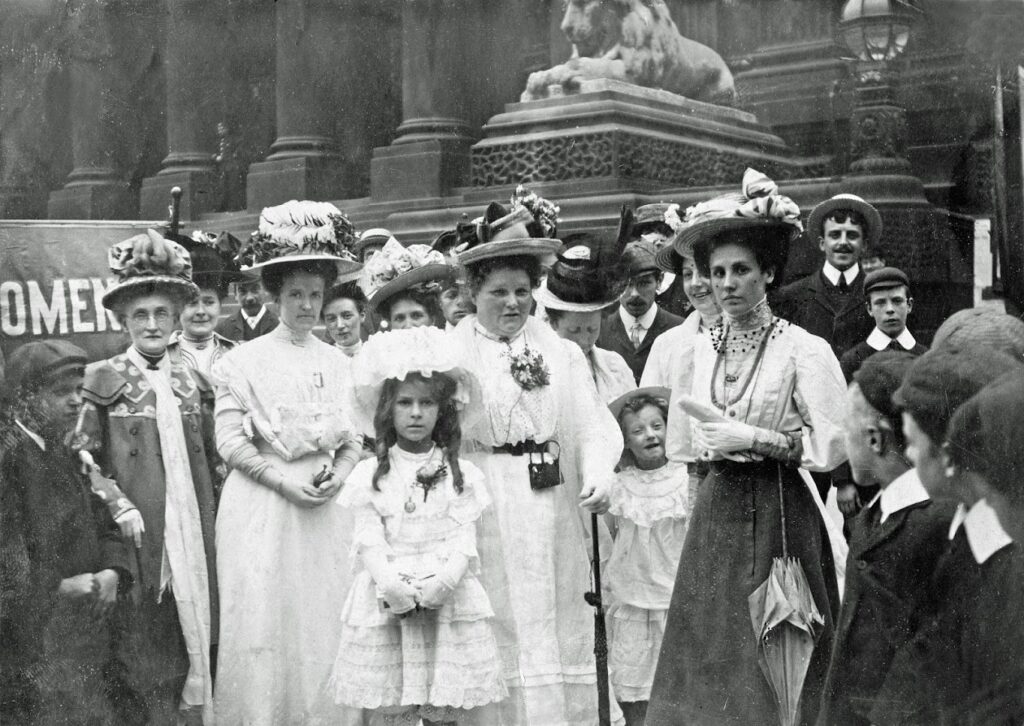Growing up I didn’t consider us to be a political family. We didn’t join a party, deliver leaflets, or spend time debating the political issues of the day. We voted of course although those votes counted for very little in a first past the post system. Skipton & Ripon (where I first voted) is one of the safest Conservative seats in the country. Leeds North East (where I moved in 1997) has returned a strong labour majority for the last twenty-five years. Holborn & St Pancras (my current constituency) is another staunch labour stronghold. The MP in each case is chosen not by the electorate but by party members long before the election.
Our thinking has changed as we have grown older. Whilst Mum may still refuse to tell us how she actually voted, family lunches regularly stray into political debate and even Mum became an active campaigner during the EU referendum. It was at that point I decided to gift my youngest sister, Sharon, a rather unusual birthday present which I’ll come to later.
This week’s #52ancestor hint “voting” is the prompt I needed to bring together a few short stories of how our ancestors have long engaged in politics, demonstrating that we are much more of a political family that it might have once appeared.
How the men in our family voted in the 1868 general election

The snappily named “Poll book for the election of two Knights of the Shire for the Eastern Division of the West Riding of Yorkshire on Saturday November 28th 1868” records the actual votes cast in the 1868 general election. It also provides clues as to the voters’ relative wealth. The Reform Act 1867 had significantly increased the number of enfranchised men. In the Shires this right had been extended to all male heads of household occupying property with a rateable value of at least £12. The poll book also splits the electorate into those who either owned property or paid more than £50 a year in rent and those who did not.
It was a narrow Conservative victory over the Liberals.
What of our ancestors? William Clapham, Thomas Wellock and Joseph Furniss occupied property with a rent of £50 or more and voted for the conservative candidates. Joseph Demaine, Richard Gill and Thomas Bradbury occupied smaller properties and voted for the liberal candidates. It’s a small sample so I’ll ignore the temptation to draw conclusions about the link between wealth & party. More critically John Howson, John Handley, George Brooks & Thomas Houseman were clearly missing from the voters list. All four headed up their households in 1868 and were likely disenfranchised due to poverty. Then there’s poor Matthew Wilkinson, who’s voting card was blank as he died less than a fortnight before the election. Not that his vote would have made a difference. To a man, Rigton voted for the conservative candidates.

Michael Houseman and the Harrogate Liberal party
Michael is my great, great grandfather (Grandma’s Grandfather). Born in 1842, Michael would have been old enough to vote in 1868 and there is a possible conservative candidate voting match in the poll book. Unfortunately, there was more than one Michael Houseman living in Darley at the time making it impossible to know if he is ours. Indeed, later evidence would point to the opposite, for Michael was an active member of the Harrogate Liberal Party in the late 1880s, the first member of our family for whom I can evidence a political party connection.

Michael was an elected official within the Liberal Party, the Divisional Association Delegate (Haverah Park). Which might sound impressive until you consult the census and see that there were just 71 people living in Haverah Park in 1891! There’s also little evidence of Michael contributing to the party meetings which were faithfully covered in detail by the Knaresborough Post. Perhaps Michael felt he should defer to those with more education or wealth or perhaps he felt he had nothing relevant to say about Irish Home Rule which dominated the discussions through this period. (It makes me sad to write this at a time when a hard border on the island of Ireland is back causing conflict). Still, it’s wonderful to find an ancestor who was actively involved in party politics more than 130 years ago.
Marie Greevz, our first political activist
A year or so ago, my sister Sharon suggested I needed to find a suffragette in the family. Ha, I said, we are not a political family. Then I stumbled on Marie Greevz, born Martha Clapham.

Martha was the daughter of the previously mentioned William Clapham (my great, great, great grandfather) and their politics couldn’t have been more different for Martha was a militant feminist and active suffragette. Unlike her generational peer, Michael, Martha spoke out in meetings, wrote letters to newspapers, marched on demonstrations and was elected as the first female president of the Leeds Philatelic Society. She was a political activist and a woman I am looking forward to learning much more about.
Sharon Slinger and an unusual birthday present

My sister Sharon and I are both political campaigners in our different ways. After many years of debate, we have learnt to wholeheartedly support each other on most issues and to respect the right to have conflicting opinions where we don’t agree. We both care deeply about people, personal integrity, community, (in)equality and climate change. We both put the work in behind the scenes to make things happen and have both learned to be pragmatic where needed. If we’d grown up in a different family we may have both engaged in party politics from an early age. But we didn’t, so we didn’t.
We’ve often voted differently, and it took the EU referendum for me to absorb how close our politics really were. Which led to the unusual birthday present. I joined Sharon up to the Lib Dems. Most inspired birthday present ever. She dived right in. For we are a political family. Earlier this year Sharon became (as far as I know) the first in our family to stand for election as a city councillor (for Weetwood in Leeds). I had to watch wistfully from London, pride in my heart, as my entire family took to the streets in support of Sharon. Labour felt nervous enough to bring in the big guns. 2,207 votes was a pretty credible result, but sadly not enough to take the seat. This time.
In short, we are a political family
250 years ago, an act of parliament allowed the majority of our ancestor households to have at least one vote. 130 years ago an ancestor first joined a political party. 100 years ago a female relation demonstrated how women could be incredibly effective political campaigners. This year my sister has proved herself as a credible candidate in a hard-fought city council election. Our next generation may or may not decide to engage directly but they will at least know that they are from a political family and they have every right to step forward should they so wish to do so.
With much gratitude to all those of my ancestors who voted and especially to Michael Houseman, Martha Clapham & Sharon Slinger who taught me that we are a political family. Also to Amy Johnson Crow for the 52 ancestors hint.
